
-
Find the right food for your petTake this quiz to see which food may be the best for your furry friend.Find the right food for your petTake this quiz to see which food may be the best for your furry friend.Featured products
 Perfect Weight Small & Mini Adult Dog Food
Perfect Weight Small & Mini Adult Dog FoodHill's Science Plan Adult Small & Mini Dog Food with Turkey is a complete premium pet food for adult small dogs from 1 year old that are prone to weight gain or slightly overweight. This deliciously smooth mousse is formulated to deliver the appropriate amount of energy to support weight maintenance in adult dogs.
Shop Now Perfect Digestion Small & Mini Adult Dog Food
Perfect Digestion Small & Mini Adult Dog FoodHill's Science Plan Perfect Digestion Small & Mini Adult Dog Food with Turkey is a complete premium pet food for small breed adult dogs aged 1–6 years. This deliciously smooth mousse is precisely balanced to deliver the appropriate amount of energy and to support digestive health in adult, small breed dogs.
Shop Now Hypoallergenic Small & Mini Adult Dog Food
Hypoallergenic Small & Mini Adult Dog FoodHILL'S SCIENCE PLAN Hypoallergenic Small&Mini Adult dog food with Salmon is complete pet food for adult small dogs 1–6 years old. It's formulated for dogs with delicate skin and stomach, with limited high quality novel protein sources & no grain.
Shop NowFeatured products Sterilised Mature Adult Cat Food
Sterilised Mature Adult Cat FoodHill's Science Plan Sterilised Cat Mature Adult Cat Food with Chicken is specially formulated with ActivBiome+ Multi-Benefit Technology. It is a precisely balanced nutrition tailored to meet the needs of mature adult sterilised cats, ages 7+, and to promote graceful ageing.
Shop Now Urinary Health Adult Cat Food with Chicken
Urinary Health Adult Cat Food with ChickenHill's Science Plan Urinary Health Adult Cat Food with Chicken supports the health of the whole urinary system. Suitable for sterilised cats.
Shop Now Oral Care Adult Cat Food
Oral Care Adult Cat FoodHill's Science Plan Oral Care Adult Cat Food with Chicken contains clinically proven kibble technology to reduce plaque & tartar build up.
Shop Now -
Dog
- Dog Tips & Articles
-
Health Category
- Weight
- Food & Environmental Sensitivities
- Urinary
- Digestive
- Joint
- Kidney
-
Life Stage
- Puppy Nutrition
- Adult Nutrition
- Senior Nutrition
Cat- Cat Tips & Articles
-
Health Category
- Weight
- Skin & Food Sensitivities
- Urinary
- Digestive
- Kidney
-
Life Stage
- Kitten Nutrition
- Adult Nutrition
Featured articles Virtual Vet Visits: What You Need to Know
Virtual Vet Visits: What You Need to KnowLearn the ins and outs of a televet appointment before you talk to a vet online.
Read More Tips For Mixing Wet And Dry Pet Food
Tips For Mixing Wet And Dry Pet FoodDiscover tips for mixing wet and dry pet food to ensure balanced nutrition and variety for your pet. For comprehensive feeding advice, visit Hill's Pet UK.
Read More Develop your gut instinct | Hill's Pet
Develop your gut instinct | Hill's PetDigestive disorders can affect any part of the digestive system, from the stomach, small intestine and through to the large intestine.
Read More -


Have you ever come home at the end of a long day to find an injured cat? If you've lived with cats for any length of time, you'll no doubt have a story or two to tell. Whether it's a swollen face, a bleeding ear or an impressive limp, feline injuries are common even for indoor kitties. Learn the basics of cat wound care to help your cat immediately after an injury and while they’re recovering from veterinary treatment.
Recognising an Injured Cat
The hardest part of feline injury management is cats' tendency to hide their pain. That's because their wild side is programmed to avoid showing weakness. Think about it, a visibly injured cat is a magnet for predators.
Signs of pain and injury may be obvious, like bleeding, limping and swelling, but they may also be more subtle, like hiding, lethargy and diminished appetite. If your cat isn't visibly hurt but is still acting oddly, examine more closely for signs of an injury.

What to Do if Your Cat Gets Hurt
Indoor cat injuries are typically sustained from athletic misadventures (failed jumps or falls), furniture accidents (dashing under a rocking chair or recliner), burns (stove or heater mishaps) and door slam injuries. You might be present when the accident happens, or you might come home to find an injured pet.
As soon as you spot an injury, call your veterinarian or local animal hospital and let them know you're on your way. Treat every feline injury like an emergency. Even the most superficial wounds require immediate attention, and with cats, you never know how painful and complicated a simple limp might be. Almost all injuries heal faster with earlier veterinary intervention.
Follow Vet Instructions for Cat Wound Care
If your injured cat comes home with stitches, a surgical site or an open wound to care for, there are clear rules you should follow. Listen to your vet closely.
The first step is keeping your pet from licking or scratching the wound. If they are sent home with a protective collar, do not remove it without a discussion with your vet. You should only loosen your cat's cone or collar if it is clearly restricting breathing. If loosening a collar allows your cat to wiggle out of it, call your vet immediately. Vets labour this point because a collar is often the only thing keeping an injured cat from making the wounds worse.
If your kitty has bandages, they must remain clean and dry. Any wrappings that become saturated with drinking water or urine or smeared with stool or litter must be replaced within a few hours at the most. Your vet may teach you how to change wrappings yourself, or they may ask you to bring your cat back for a clean bandage.
Look out for swelling that may indicate bandages and wrappings are too tight, but never remove them on your own unless you've been instructed to. If the area around a bandage appears swollen, red or oozing, it's time for an immediate check with the vet.
Finally, follow the directions on any medications to the letter. If you have questions about whether they're appropriate or necessary, call your vet to discuss before taking matters into your own hands and discontinuing the medications or changing the dosage. You should never give your cat human medications or anything that has not been prescribed without your vet's advice.
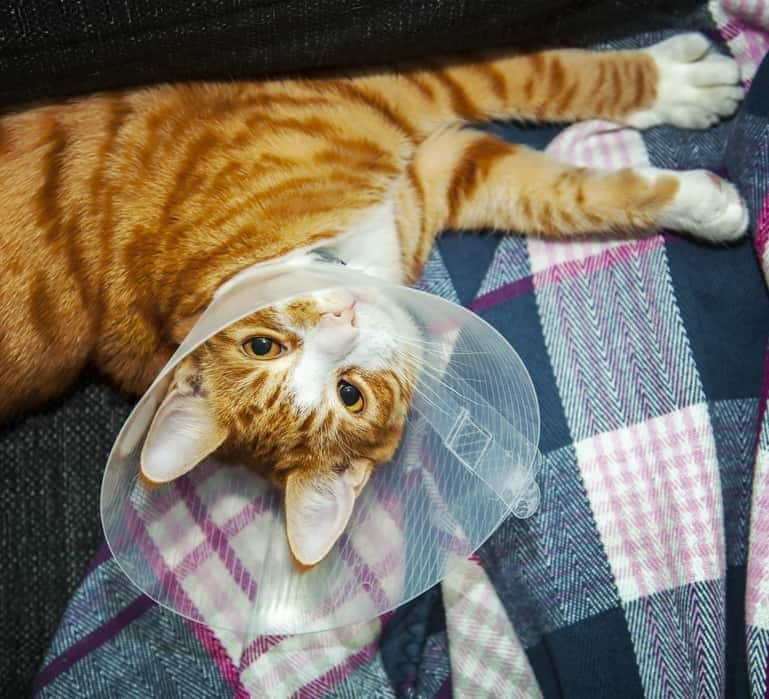


Tasty Tips
Keeping an Eye on Your Feline Patient
Recovering cats should be monitored for overall behaviour, elimination habits and appetite. Signs that your cat isn't recovering well include:
- Lethargy
- Hiding
- Diarrhoea or constipation
- Urinating outside the litter box
- Vomiting
If your cat shows any of these signs, go back to the vet for another check. Any evidence of self-trauma should be grounds for calling your vet, as well. Cats can use their raspy tongues and sharp claws to remove their stitches or induce an infection. The signs of an infected wound may include a foul smell, redness, discharge or swelling.
Nutrition for Injured Cats
Cats have special considerations when it comes to nutrition after an injury or surgery. Many will refuse to eat, making a nutritious diet especially important. Your vet may recommend a therapeutic food for immune support or extra calories while your pet is recovering. Your cat may also need special food if they have an upset stomach or gastrointestinal issues after an injury.
It's important to go out of your way to ask your vet to make specific recommendations for feeding an injured cat. They can take the injuries, medications, other health conditions and eating preferences into account.
Cat Wound Care at Home
People who love cats often want to play a more direct role in treating injured cats. Vets often applaud a desire to learn more about cat wound care, but many strongly recommend giving a professional the opportunity to weigh in. Having a vet direct pet parents' home care efforts can keep them from inflicting accidental damage. If you feel up to the task of treating minor cat injuries at home, here are some pointers:
- Clean minor wounds with warm water and dry them with a clean kitchen towel or a wad of soft paper towels. You can use a mild salt water solution, but Petful advises leaving the disinfectants on the shelf since some can delay healing and others are toxic to cats.
- Deep injuries may improve with soaking or hot compresses. Apply a clean kitchen towel as a compress or soak the injured area in a warm Epsom salt solution for five minutes.
- Only apply topical creams and salves with a recommendation from your vet.
If your cat negatively reacts to you trying to treat them, by scratching or biting at you, it is likely best to just bring your cat into the vet and let the professionals perform the examination and treatment to avoid exacerbating the issue.
As always, call your vet if you have any doubts. Remember to watch out for the signs of an infection or digestive issue, and be sure not to overlook any subtle evidence of pain or discomfort. With a little love and care from you and your vet, your kitty will hopefully be back to their frisky self in no time.


Dr. Patty Khuly is an award-winning veterinarian known for her independent thinking, her spirited pet advocacy, her passion for the veterinary profession, and her famously irreverent pet health writing.
Dr. K is an honors graduate of both Wellesley College and the University of Pennsylvania School of Veterinary Medicine. She received her MBA at The Wharton School of Business as part of the prestigious VMD/MBA dual-degree program. She now owns Sunset Animal Clinic, a veterinary practice in Miami, Florida.
Related products

Hill's Science Plan Oral Care Adult Cat Food with Chicken contains clinically proven kibble technology to reduce plaque & tartar build up.

Hill's Science Plan Sterilised Cat Mature Adult Cat Food with Chicken is specially formulated with ActivBiome+ Multi-Benefit Technology. It is a precisely balanced nutrition tailored to meet the needs of mature adult sterilised cats, ages 7+, and to promote graceful ageing.
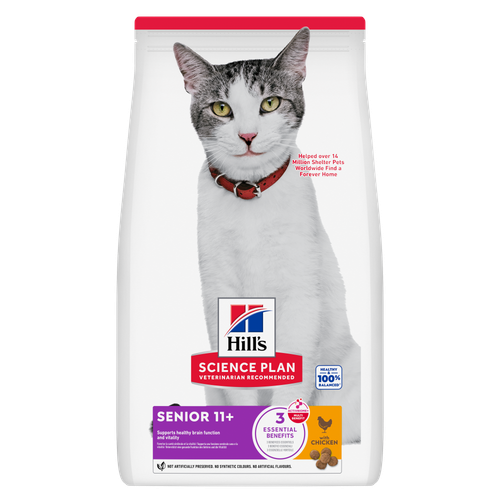
Hill's Science Plan Senior Cat Food with Chicken is a complete pet food, specially formulated with ActivBiome+ Multi-Benefit Technology.
This food supports healthy aging during the golden years. Contains a special ingredient blend to help keep older cats agile, more alert & interactive.

Hill's Science Plan Urinary Health Adult Cat Food with Chicken supports the health of the whole urinary system. Suitable for sterilised cats.
Related articles
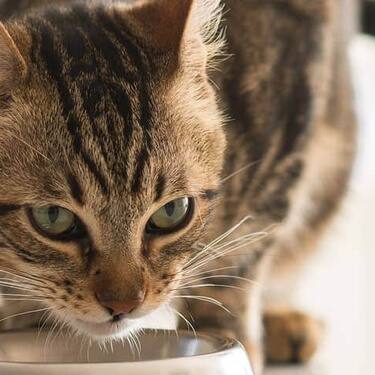
Discover what you can do to spot and support a sensitive cat stomach. See what routines and food you can implement to help your cat be happy and healthy.
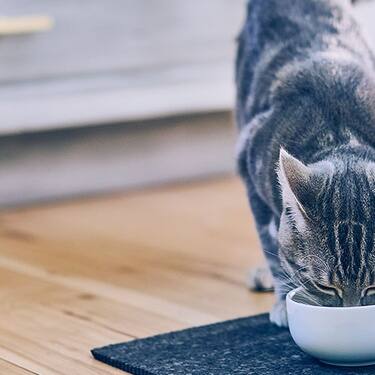
Good nutrition is about the right balance of nutrients. Learn more about health issues when feeding a cat food that has an improper nutritional balance from your friends at Hills Pet Nutrition.
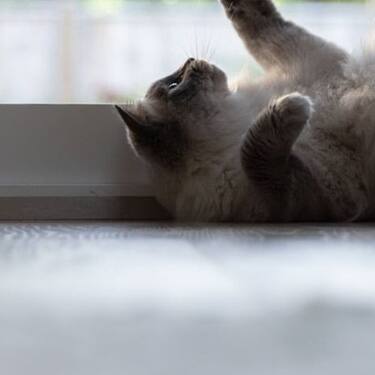
Feeding time can be a wonderful bonding opportunity for you and your cat. Find out how to make the most of it and create a healthy habit with HIll's Pet UK.
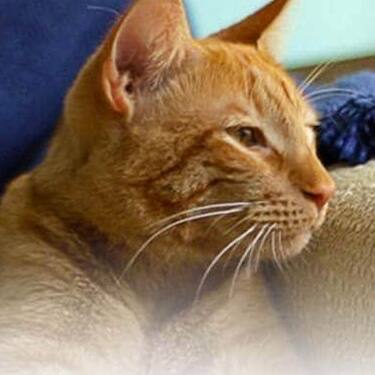
Find the right Hill

Put your cat on a diet without them knowing
Our low calorie formula helps you control your cat's weight. It's packed with high-quality protein for building lean muscles, and made with purposeful ingredients for a flavourful, nutritious meal. Clinically proven antioxidants, Vitamin C+E, help promote a healthy immune system.
Put your cat on a diet without them knowing
Our low calorie formula helps you control your cat's weight. It's packed with high-quality protein for building lean muscles, and made with purposeful ingredients for a flavourful, nutritious meal. Clinically proven antioxidants, Vitamin C+E, help promote a healthy immune system.

